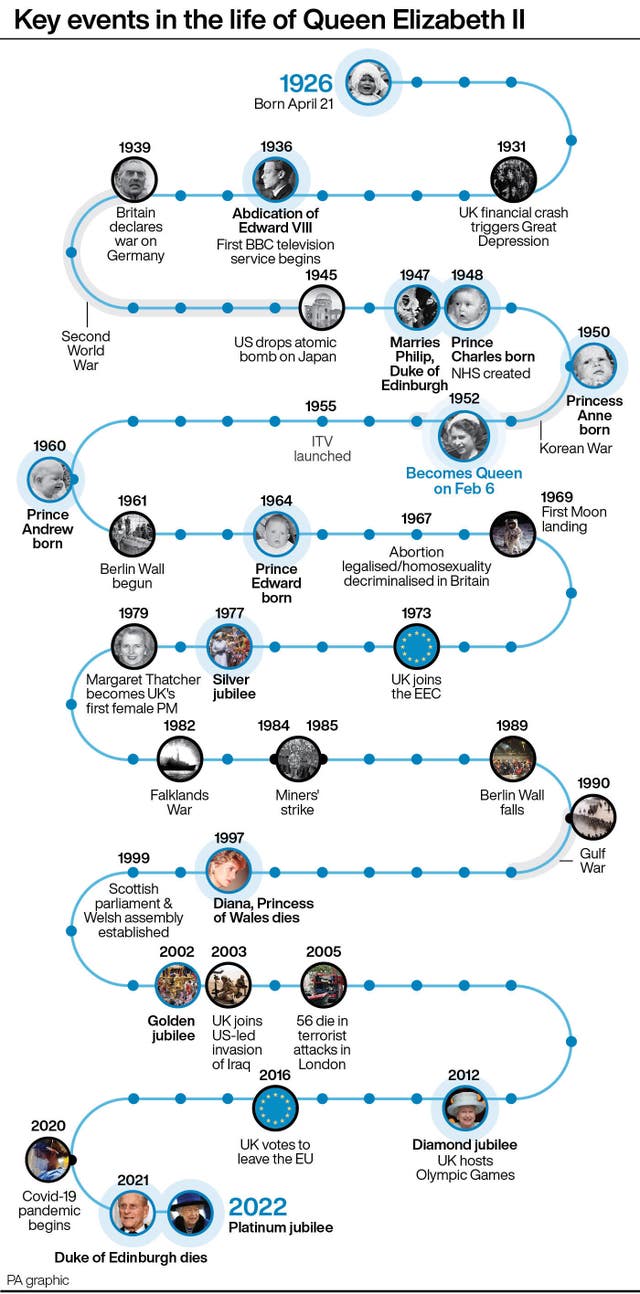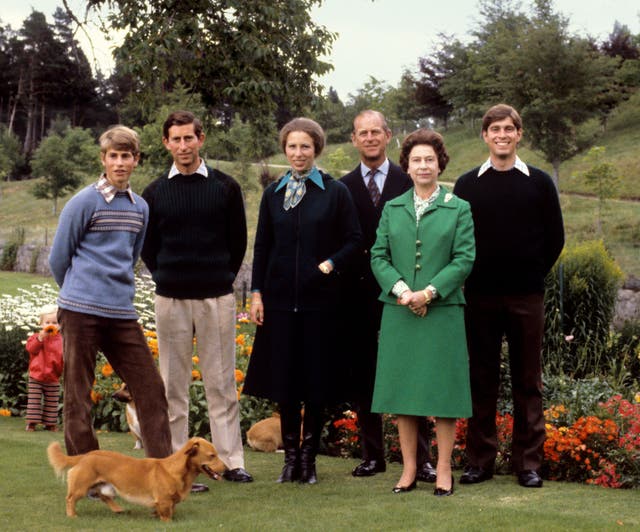The Queen’s Platinum Jubilee will be a milestone celebrated across the country in honour of a monarch who has left an indelible mark on the life of the nation.
Spanning a period from post-war Britain when rationing was still in place, to a world of virtual currencies, driverless cars and pandemics, the Queen’s period as head of state is forever entwined with the country’s history.
Her unique standing and length of her reign prompted royal author Penny Junor to say she believed “we will possibly never see her like again”.
The loss of the Queen’s beloved husband the Duke of Edinburgh will be keenly felt by the monarch and her family during this momentous year, especially when Platinum Jubilee celebrations are held across an extended Bank Holiday weekend in June.
But threatening to overshadow events is the Duke of York’s civil sexual assault trial scheduled for the autumn in America, with each legal development in the run-up to the hearing potentially producing negative headlines.
Ms Junor described how the Queen, arguably one of the world’s most recognisable individuals, has earned the esteem and admiration of many thanks to her decades of service to the nation.
“She’s been extraordinary at the helm, and she has been loved and respected all over the world. And I would say she’s left the throne in a very healthy state for her heirs,” said the author.
She added: “I think we will possibly never see her like again in terms of length of reign and the enormous change that has happened both in society and technology while she’s been on the throne.
“The change has been absolutely phenomenal and I think her great skill has been to incrementally bring the monarchy up to date.”
The Queen was a young woman of 25, when her world changed irrevocably on February 6, 1952, the day her father King George VI died and she became head of state – almost 70 years ago.
Now aged 95, the Queen has seen 14 prime ministers come and go from her first, the Second World War leader Sir Winston Churchill, to the present premiere Boris Johnson.

And there are now three generations of future monarchs, her son the Prince of Wales, grandson the Duke of Cambridge and great-grandson Prince George.
The extended four-day Platinum Jubilee weekend, will begin on June 2 with Trooping the Colour, which will be staged in full for the first time since the pandemic. A service of thanksgiving for the Queen’s reign will be held at St Paul’s Cathedral the following day.
Other highlights include a day at the races for the Queen and her family who will fill the royal box for the Derby, held at Epsom Downs on the Saturday, and later that day a star-studded concert will be staged from Buckingham Palace.
Communities across the country will sit down together for the Big Jubilee Lunch during Sunday, the final day of the Bank Holiday weekend, and the Platinum Jubilee Pageant will also be staged in the capital featuring more than 5,000 people from across the UK and Commonwealth.

Commenting on Philip, who died in April last year a few months short of his 100th birthday, Ms Junor said: “I think it will be sad for the Queen not to have him by her side, but then he had not been by her side since he retired in 2017.
“On a personal level, I’m sure she still misses him enormously and there’s a big hole in her life, but in terms of the job I think she’s fine and she’s got support from her children and in-laws.”
Andrew has denied all the allegations in his civil sexual assault case, but the author believes the fallout from his trial “will be tremendous”.
She added: “The media will have an absolute feast and that will inevitably impact on the monarchy and on this goodwill and happy celebratory year of the jubilee, so the timing could not be worse.”

